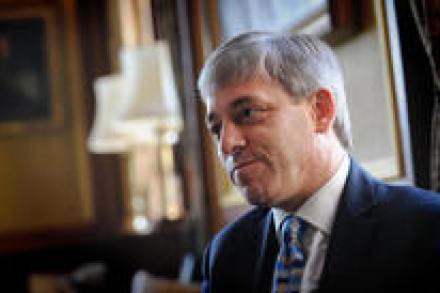Things the Speaker shouldn’t discuss in public
As Andrew Sparrow says, it’s well worth reading Iain Dale’s interview with John Bercow in the latest issue Total Politics. It’s a fun read, mostly because the Speaker is remarkably candid – a quality that’s normally to be admired in a politician. But I can’t help thinking that he made a mistake in admitting this: “I received various approaches from various senior people in the Labour party saying: ‘Aw, you know, we’d love to have you on board. We think you’re being discarded by the Conservatives. We think you’d be quite at home with us.’ Senior people, not in a formal setting, but people sidling up to you –











